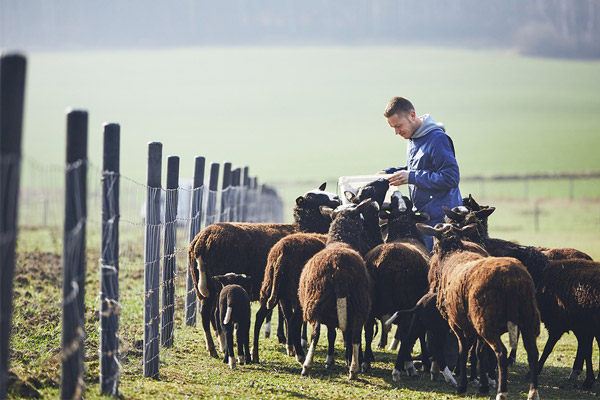We wrote our farmer tax guide to help answer some practical questions about farming and tax.
There is a lot of confusion about defining a farmer in the tax system. And, it can be just as tricky to determine whether farming activities are taxable. We also cover some helpful tax tips to consider when selling your farm.

The Definition of Farmer
Surprisingly, there is no definition of “farmer” for tax purposes. Instead, the Australian Taxation Office (ATO) defines farming within a broader category of “primary producers”.
A primary producer is an individual, partnership, or company that is undertaking plant or animal cultivation, fishing or pearling activities, or tree farming or felling. They can claim different tax incentives and are subject to different tax rules.
Hobby Farm vs Working Farm
The first thing to consider is whether you are a primary production business or a small-scale hobby farm.
Generally, hobbies are not taxable as they do not operate at the same scale as businesses.
Farmer tax guide example 1: Hobby
A person has a dozen chickens that produce more eggs than their household needs. If the person sells the excess eggs to their neighbours and that is the extent of their ‘farming’, then it’s unlikely that person is operating a business. They can keep the money they make and pay no tax.
Farmer tax guide example 2: Working Farm
A person raises and breeds 30 llamas and intends to sell the wool to a clothing manufacturer. It is likely this person runs a business and the profits are subject to taxes.
How do I know which type I run?
A number of factors can help determine whether your farming activities are a taxable business.
The most important determining factor is whether you are setting out to make a profit from your activity. In addition your activity is likely to be considered a business if it is regular and repeated. The scale, size, level of skill and initial investment to start generating income can also be factors.
Taxes on Selling your Farm
If your farm is a taxable business, it’s worth considering the tax implications if you eventually choose to sell your farm.
Capital Gains Tax (CGT)
Capital Gains Tax (CGT) is a tax that applies on the sale of any asset, including commercial farms. If you choose to sell your farm, you may incur a capital gain.
This is the difference between the original cost of the farm and the sale price. Your personal tax rate is then applied to the capital gain.
However, when you sell a farm, there are a few ways to reduce the amount of CGT.
CGT Exemption #1: Main Residence Exemption
The “main residence exemption” is generally applied when selling the family home. With many working farms, the main residence of the property forms part of the farm. In this situation, it is possible to claim a partial exemption.
An independent valuation of that part of the property is usually required.
CGT Exemption #2: Health Considerations
If you can answer yes to ALL three questions below you may be exempt from Capital Gains Tax:
1. Are you are over 55,
2. Either retiring or permanently incapacitated, and
3. Have owned a working farm for over 15 years
You may need professional medical advice to find out whether “permanent incapacitation” applies to your circumstances.
CGT Exemption #3: Retirement Exemptions
The general small business retirement exemption is slightly easier to access. The exemption applies if you are a retiring small business owner selling your business (including farms). This rule recognises that unlike regular employees, small business owners including farmers, are likely to have far less retirement savings. To address this imbalance, you may be eligible to disregard up to $500,000 of the capital gain on the sale of your farm.
Farmer Tax Guide: Need to know more?
Not sure if you’re a primary producer, or do you have questions about the sale of your farm? No problem, get in touch with us on [email protected] or 1300 693 829 and our team of expert accountants will be happy to help you out.
Please note: The information on this page is general in nature and should not be relied upon as detailed advice. Each situation is different and we recommend you seek the advice of a financial planner and or/tax agent who can assess your unique circumstances and provide you with detailed advice.




